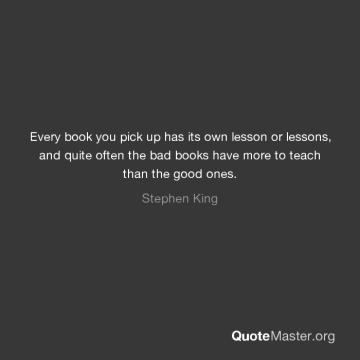
I recently had the opportunity to review more than a hundred stories in a short space of time–all from writers seeking feedback. By the time I was done, I felt like I’d had a master class on writing—I learned as much from the stories that needed work as I did from the ones that were ready. There really is no substitute for critiquing—both the giving and receiving of it.
If you belong to a group such as SCBWI or 12×12, take advantage of the critique forums. Read as many stories in a row (and the feedback) as possible—it’s like a mini slush pile. You’ll learn buckets just reading stories in all sorts of stages. And when you’re ready, return that blessing by critiquing and adding your own stories.
I remember feeling overwhelmed as a newbie to comment on the stories of other writers. I also remember feeling petrified to allow others to see my work, but my writing didn’t progress until I sought those critiques.
It’s always easier to see the flaws in someone else’s writing than it is in your own (a philosophy that’s true for many things), which is why it’s necessary to have a peer review of your work. After all, an agent or editor will have to see your work before it ever hits the shelves (if you’re planning to traditionally publish), so getting peer reviews will prepare you to deal with the reality of publishing.
But there’s another positive benefit to sending your work into the world—you help other writers. After reading story after story that had the same problems as my stories did, something clicked in my brain: first of all, I recognized that my stories had the same problem, something I hadn’t been able to see; and I realized how I could fix those problems.
 Critiquing exercises the analytical side of your brain, which is great when it comes to recognizing the flaws in your own work (a skill that is not easily acquired). But learning how to give good critiques is a discipline worth mastering.
Critiquing exercises the analytical side of your brain, which is great when it comes to recognizing the flaws in your own work (a skill that is not easily acquired). But learning how to give good critiques is a discipline worth mastering.
I’ve received feedback that crushed me and made me want to quit. I’ve given feedback that likely crushed others and made them want to quit—I’m not proud of that. The balance between flagging issues that need to be addressed without disheartening the writer is weighted on gold-dust scales. Finding critique partners that understand that balance is priceless. When you find them, hold on to them, but don’t ever be afraid to leave a situation where you feel like your writing is constantly under attack. Writers do need a thick skin, but we also need a safe place to molt into that thicker skin.
So hear’s what I learned from reading a ‘slush pile’:
Some stories had a great concept, but lacked a coherent plot. Others had a text-book plot, but lacked an engaging concept (see Tara Lazar’s post on concept) (also see this post on marketability from Tara Luebbe).
In many, the voice (read Rubin Pfeffer’s interview for a good explanation of voice) wasn’t there. The manuscripts or dialogue read like a grown up was talking to a colleague at a water cooler instead of to a group of picture-book-aged kids. And by that, I don’t mean a condescending kind of voice—that’s equally wrong—but the difference between:
“The night Max wore his wolf suit and made mischief of one kind and another …” (Where the Wild Things Are)
or
“One night, Max wore a wolf suit and growled at his mother.” (Stories From the Round File–heretofore unpublished :)
Some stories were well-written, but dealt with a topic that will have to appeal to just the right agent or editor to find their home—these are the times when subjectivity really is the reason a manuscript doesn’t land. Others started off with so much promise then had a predictable ending or a plot line that fell apart as the story progressed—a good critique should sort this out. And then there were those that I felt sure would find a home very soon—marketable concept, solid plot, and engaging writing with surprises for the reader.
I saw many more that were close to being stellar, but lacked one thing or another. Every bestseller has been at this stage at some point, so I would hope that the writer doesn’t give up. Again, a hearty round of critiques will push these stories above the pack.
Don’t be afraid of critiques. They’re a necessary part of growth.

Additional resources:
Highly recommended:
http://thevirtualinstructor.com/blog/the-importance-of-critique-art
http://www.kidlit411.com/2014/01/critique-groups.html
https://kathrynevans.ink/2012/12/17/ten-essential-picture-book-elements/

Great post. And I find it interesting too, when I critique a whole bunch (for a contest), I learn very quickly what stands apart or rises like cream to the top.
LikeLiked by 1 person
So true. Thank you, Vijaya.
LikeLike
Johnell, great insight. Thank you for sharing and including helpful links.
LikeLiked by 1 person
Thank you. Glad it was helpful.
LikeLike
Hear, hear!
LikeLiked by 1 person
🙂
LikeLike
This is so true, Johnell! Being part of a good critique group is the #1 thing a writer can do (besides WRITE, of course) to help move his/her career forward. Thanks for sharing this!
LikeLiked by 2 people
Yes. And I have the awesomest critique group. 😉 Thank you.
LikeLike
Great post. Now I’m wondering if I should give up!
LikeLiked by 1 person
Don’t give up. Good luck.
LikeLiked by 1 person
Thank you. I won’t give up. 🙂
LikeLike
So true. I find I get just as much insight (if not more) from critiquing than getting others’ feedback.
LikeLiked by 1 person
Yes. I would love to intern for an agent at some point.
LikeLike
Excellent post Johnell! 100 stories, wow! That in and of itself is an amazing feat. Thanks for sharing what you learned and the additional links.
LikeLiked by 1 person
Thank you, Maria. It was fun.
LikeLike